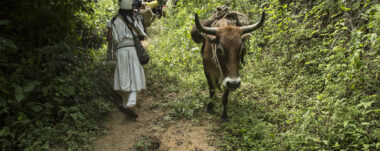Femicides and Access to Justice in Costa Rica
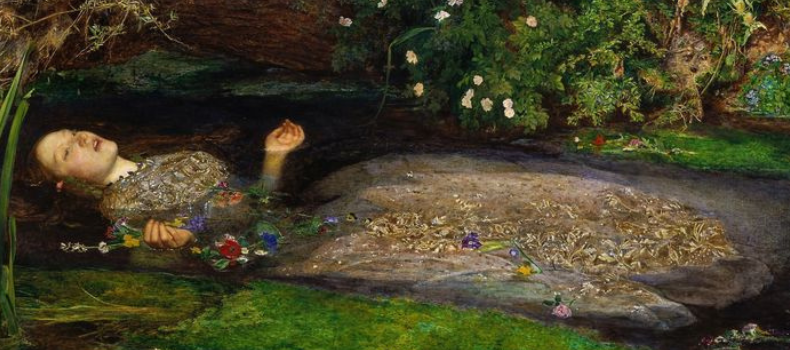
How is the problem of gender violence and femicides being addressed in Costa Rica? What are the obstacles to accessing justice? An interview with Paola Zeledón of Bread and Roses.
According to the Observatory of gender violence against women and access to justice, in 2022, there were 21 femicides (46%) out of a total of 50 violent deaths of women in Costa Rica. In 2023, there were 18 femicides out of 72 violent deaths of women. To this we must add that:
As of February 14, 2024, 37 violent deaths of women were pending classification by the Inter-institutional Subcommission for the Prevention of Femicides, due to the fact that the Gender Prosecutor’s Office had not had any information derived from the investigation or the opportunity to access it, not even of a preliminary nature.
We spoke with Paola Zeledón of the international organization Bread and Roses about femicides in Costa Rica. On whether there is real access to justice in the country.
What are the main obstacles faced by women victims of gender-based violence when trying to access justice in Costa Rica?
In our opinion, from Bread and Roses we position ourselves from socialist feminism and precisely [we think that] the role that the State has in patriarchal violence, in violence against women, in sexually diverse people [is] not only the instance to which we have to demand things or that has to guarantee things, but we understand that, the reality in a capitalist society, the State is a function of a social class.
To put it in a comprehensive way, the State as a whole is in function and is functional to gender and patriarchal oppression in order to continue functioning the status quo. For us, the first obstacle is that: we live in a world in which the vast majority of society, the working class, the popular majorities that are composed of women from these sectors. The State is not in a position to guarantee justice to them.
Then, there are a series of brutal differences in terms of where you live. For example, to access information, the vast majority in rural areas, in areas that are outside what we call the Greater Metropolitan Area (GAM), where there are also differences, cannot access the minimum information of where you can report, what telephone number you can use.
Another problem, which we would like to make very clear, has to do with the condition of migrant women. They do not have democratic rights in this country and, although the institutions say or there are people working in institutions who say that they are covered, the fact is that women, for example Nicaraguan women, the majority of those who are here, people from Venezuela who have passed through here, are people who, if they suffer a situation [in the country], do not have any rights, do not have any coverage. This is another very serious impediment to access the minimum things that already exist, such as information.
What role do government institutions and civil society organizations play in protecting and supporting women affected by gender-based violence?
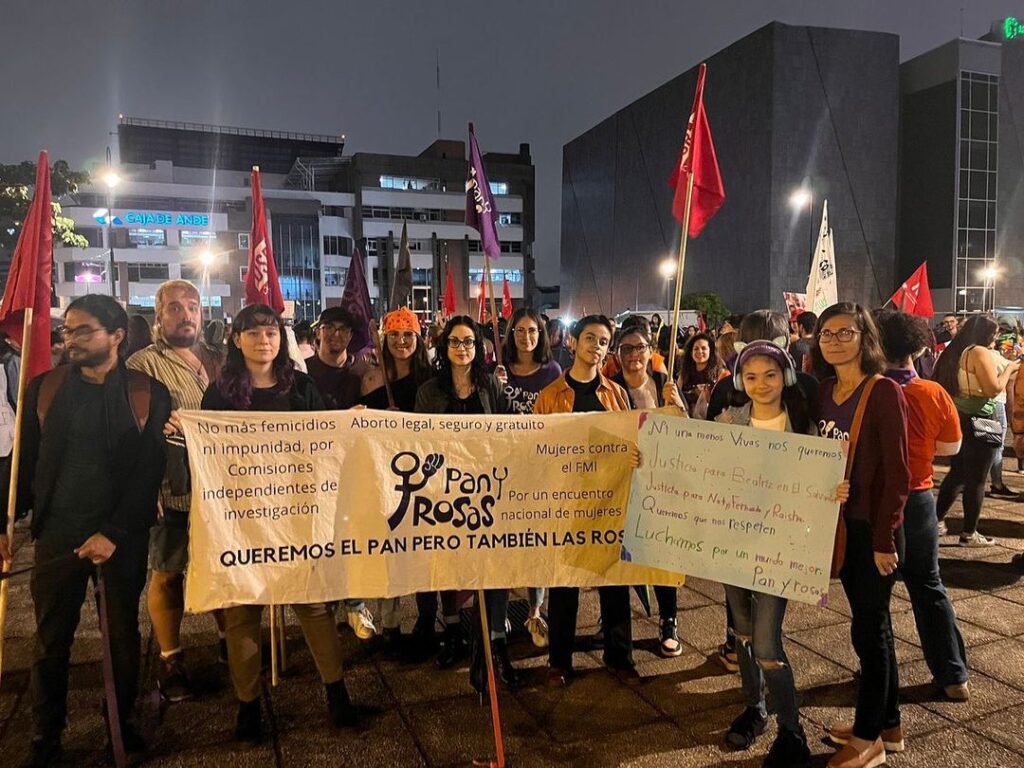
Fortunately, as we are in a international movement, we see in different countries how they behave in a very similar way, how there are things that arise in different places at the same time. For example, in countries like Mexico or other Central American countries, the State is very confused, to say the least. It is very much taken over by organized crime organizations, by trafficking networks, even by drug trafficking. There are women, children, people who cannot access institutions because they live in a place that is controlled by this or that group. So, in general, what we see is a problem of class, ethnicity, etc. very pronounced.
DeRemaining challenges: Violent deaths of women still unclassifiedsafíos pendientes: Muertes violentas de mujeres aún sin clasificar
I would like to highlight something that happens everywhere. For example, in Ciudad Juarez, which is one of the places in the world where there are more femicides per month, there is a phenomenon that is the “searching mothers”. We saw that here with the [case] of Allison [Bonilla], which was in the middle of the pandemic. There were large simultaneous mobilizations in the country.
People organize themselves to look for those who disappear or to look for clues, to look for the necessary information to have access to justice. For us, this is very important because, in the face of the apathy of the State, of the police, of the institutions of justice, we, as Bread and Roses, propose that it is necessary to build independent commissions of investigation so that there is total transparency with respect to the information and so that, in fact, these people who are the neighbors, the family of the woman who is missing or who is already known to have been murdered, can organize themselves outside the State and force them [the State and the institutions] to do something.
It seems to us that this is precisely an important example of how it is possible to overcome the impotence that the impunity of the State imposes on us. We believe that this is a great example: that if you are not a family member of a victim of femicide, but you want to show solidarity, you want to be an activist, there is a role that can be fulfilled by working from platforms, media. You can obviously use social networks. But also, this phenomenon of the searchers of Ciudad Juarez, they went and did the search days and found some information. They went and interviewed people who had information and also had solidarity from student organizations, workers’ organizations, women workers who went together to the justice institution to demand that the necessary work be done.
The impact of femicides on Costa Rican society: Reflections on the facts
Here, there is a very important case, that of Fernanda and Raisha. [Xavier] Fernanda’s brother and Raisha’s uncle is an activist, because he has put up a fight. There have been almost a thousand days of impunity in this case. He has organized, he has spoken everywhere, [in] all the places. He is present in the mobilizations of the women’s movement, for example. It seems to me that this is an important experience to highlight: that it can be done from outside the platforms, institutions, etc. that supposedly have the task of seeking justice in the face of femicides. It is important because it leaves us with the feeling that […] we can organize ourselves to fight it.
What is the impact of femicide on families and society in general?
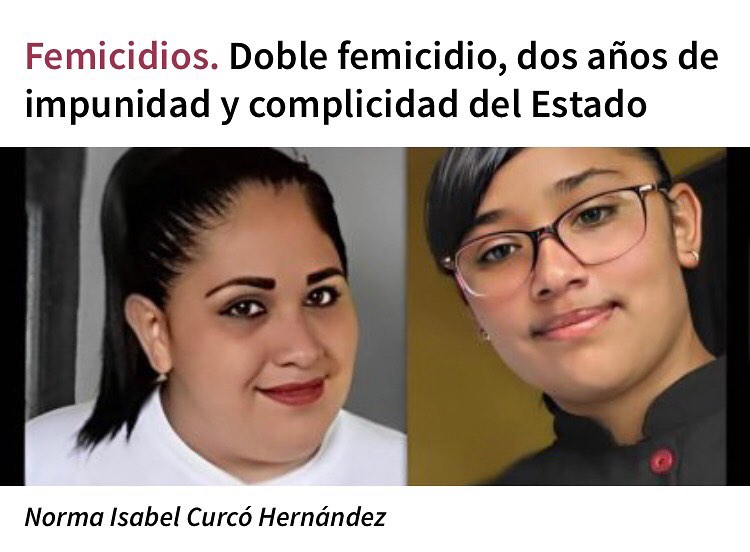
Without any intention of trying to put myself in their place, […] this society already makes us constantly confront our problems individually. I think that is the first big obstacle; besides the fact that they try to put you as someone who is not the direct victim. But how do I go on living?
There is a very clear affective-emotional accompaniment, including professional psychological help, which is fundamental. I do know that there are psychologists and social workers who work at INAMU (National Women’s Institute). It is [a task] very complicated, very difficult, with very few resources and, unfortunately, because it is within the limits of the State institution, sometimes it is not enough. It is clear that these people suffer a serious personal affectation.
The example I have seen is that as we talk, as we make every effort to make the complaint heard by more people, this will help to heal on a certain level. Although it is difficult to say that one heals completely. What I have seen is that as these people make their complaint a more collective and less individual exercise, then there is a path towards healing.
Institutional Barriers: Role of the State and its relation to patriarchal violence
There is also an element that seems to me to be important [and] much needed: a greater accompaniment on the part of the activism of organizations that are in solidarity. For example, if in this country when a family member or a friend of a unionized person is murdered, if that union would make a great accompaniment, would make a great campaign, things would be different. It seems to me the same with student federations or other types of platforms. There are other places in the world where this happens and it seems to me that these are good practices: to identify in their own lives some risk factors as they organize themselves to fight for justice for their sister, their cousin.
This has also been a contribution, a help in their own [lives] to free themselves from power relations, from relations of violence in which they find themselves. It’s very sad, it’s very hard to think that you have to go through this thing to realize it, but if you don’t see things on the basis of how to move forward, the world becomes very gray.
How does femicide relate to other forms of gender-based violence, such as stalking and domestic violence?
I think it is necessary [to make] differentiations. Precisely because in a society that is so full of violence, there is the option of seeing everything as one big, deep tragedy, and that is not the case either. We have a lot of different mechanisms for navigating this life and we are also very different from each other. There are people who are more affected by being shouted at in the street, others are less affected. It depends a lot, but it is clear that all forms of macho and patriarchal violence are linked to each other.
The difference that I would see is that femicide is the most extreme [form] and is the one that is always used as a lesson. There are a lot of social control mechanisms that, basically, what they are saying to us and to the younger ones is: “Don’t behave in this way because the risk is that you will be killed”. So it seems to me [that it is] important to talk about it as well as all these control mechanisms that are around. It is very important [to keep this in mind] to talk with peers, with men who want to get out of these behaviors.
We must make a link and be clear that our fight is against everyone. Although it is true, it is not the same to say “They shouted something at me in the street” as to say “They physically assaulted me”. It is not the same, but we are fighting against these forms of violence. Precisely, the best way to fight them is not to isolate them as individual accidents, but to see them as a social framework of how people talk about our bodies, about our lives.
What is the media’s responsibility in covering femicide and how can it be more responsible?
There are several keys. The first is that the vast majority of the media are also companies, they are corporations linked to the interests of big businessmen, of big capitalists and, to that extent, they are functional to them.
The second thing is [that it is] very clear when they are male sexists who do not question anything by writing the notes, by doing the reports. [It can be said that] there are more women, more non-binary people generating [new] content and reflecting on these things, but neither can we say that at La Extra no [woman] works and that is why the things that are said are being said.
Media criticism: Analysis of media representation and approach
Here there is an element that must be questioned: who produces what and for what purpose? What kind of media and news product is being produced in terms of what?
Another key that seems important to me has to do with the reactions or the ways in which we respond to these types of things. For example, La Extra, which we denounce [in] all the mobilizations, they have had to make some modification in the way they approach things. This political pressure works.
For example, there are countries in the world, in Mexico, where [political pressure] is used. They are simply such large mobilizations that they can no longer speak in the way they used to speak and they have to address the problem differently.
The same in Argentina, after the huge mobilizations of “Ni una menos” (Not one less), with millions of people, where there were also organizations, not only of women, but also of workers, peasants, etc. There was also a change in the way the news was made, in the way they talked about femicide because it was no longer sustained. You remained as a caveman and you would be talking to no one. They simply were not going to consume your newscast if you were saying the thing the same way.
There is no media that is objective and works on nothing, but there are political and social forces behind it. I think there is a responsibility of the media, but it can be forced, it can be twisted. As [there are] more people who [have] another way of thinking, who are generating the news, things will change.
What actions are being carried out to raise awareness of the seriousness of femicide and the importance of preventing it?
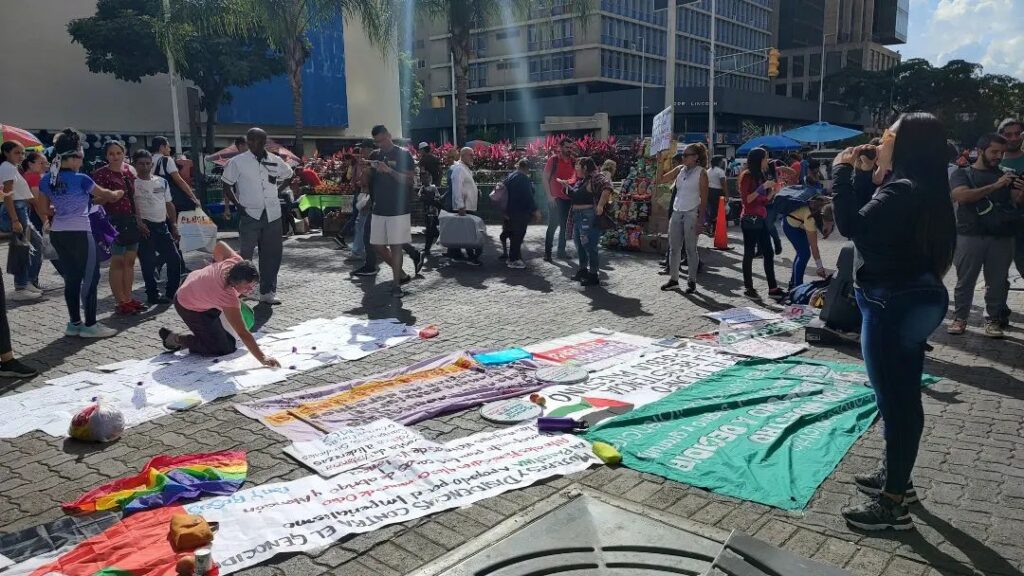
I can answer you from the language we use. We work with an international media network called the Izquierda Diario (The Left Voice). If you enter in any language, you will not find the sexist or dehumanizing language that exists; not only to talk about violence, but to talk about other things.
You are not going to find “The footballer’s wife” or any other such formulations. You’re not going to find “The wife of…”. [You’re going to find] a way to talk about our humanity in a comprehensive way. We do make an effort to spread denunciations that you are not going to see in other media, like this case of Fernanda and Raisha. We make an effort to put the claims of women who don’t have a voice in other places.
Public pressure and change
We are accompanying this process of community organization for the water topic in several cantons of San José. [These] have been guaranteeing some quite important mobilizations, where most of them are women, who as housewives, as heads of household, are going out to demand their right to water. For example, it seems to us that the women’s movement, the feminism that speaks out against violence should also take up claims like this one because it is absolutely violent that there are people who, for 18 hours a day, do not have drinking water. This affects coastal areas in an unequal way.
We have just published an important study that was done in the Sixaola area that says that 56% of the households do not have potable water in that area at all. It is not that the water is cut off during the day, [it is that] they do not have access.
I think it is necessary to emphasize that in all our marches, calls, mobilizations, we say a phrase that I think is key: “Sir, madam, do not be indifferent. Women are being killed in people’s faces” (Señor, señora, no sea indiferente. Se mata a las mujeres en la cara de la gente). I believe that the mobilization itself is very conscientizing, but more needs to be done. We must redouble our efforts.
Making diversity visible: Inclusive narratives and the fight against discrimination.
We think that we should go more to the communities themselves, to the schools, to the colleges. We need to organize more workshops, spaces for discussion and conversation. Because what you will find if you get out of the academic bubble, is that women already live in a way that questions sexism, in which they question this role of private subject that only takes care of others, that does not think about herself. There are already a lot of very creative, very different ways in which women break out of these roles and, when you go to talk about the need to question other things, to think about sexual and reproductive rights, to think about sex education, to think about the right to abortion, you realize that it is not such an arid terrain as you might think.
You realize that there are less prejudices than you think. Suddenly, what I have understood is that there are more prejudices in the businessman who lives in Escazú, who is stuck in his bubble, than in the workers, the rural workers with whom I have spoken. [They] are side by side with their colleagues, with their sister, with their cousin fighting against the same horrible economic situation.
We try to make those efforts: to show the things they don’t show you. It is also very important to put a lot of focus on the voices of younger people who are breaking with the gender binary.
Sensorial Sunsets in collaboration with Paola Zeledón, Bread And Roses Costa Rica
Navigate articles





